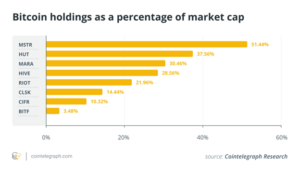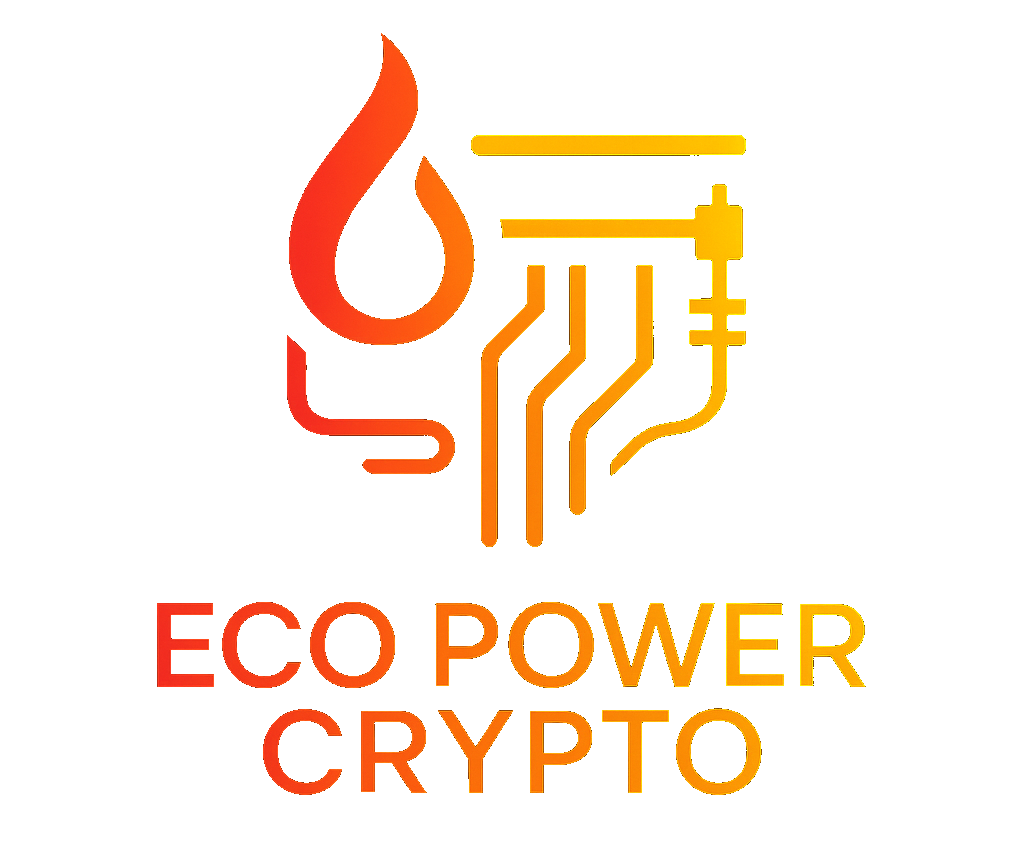Why crypto miners are ditching debt for equity

Crypto miners are moving away from debt and embracing stock dilution to fuel their AI and HPC ambitions, but the payoff is still uncertain.
Debt-to-equity shift in Bitcoin mining
The 2022 crypto winter caused major Bitcoin miners over exposed to debt financing to file for bankruptcy. Most publicly traded miners had debt-to-equity ratios over four, with values above two generally considered unsustainable. Starting in the third quarter of 2022, the Bitcoin mining industry began clearing loans. The only exception to the trend of shrinking debt levels was Q2 2024, a quarter skewed due to a $150 million investment into Hut 8.
Deleveraging in the crypto mining business allowed companies to cut down debt-servicing costs, which rose with higher interest rates and improved their creditworthiness. In addition, lower debt levels let miners focus more on strategic development, such as branching into high-performance computing (HPC) or developing a treasury strategy.
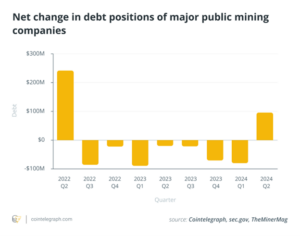 Since Q4 2023, mining companies have increasingly turned to equity issuance to finance their operations. Over $4.9 billion was raised between Q3 2023 and Q2 2024, which is 300% more than in the three preceding quarters. The largest increase happened in Q1 2024, with nearly $2 billion raised.
Since Q4 2023, mining companies have increasingly turned to equity issuance to finance their operations. Over $4.9 billion was raised between Q3 2023 and Q2 2024, which is 300% more than in the three preceding quarters. The largest increase happened in Q1 2024, with nearly $2 billion raised.
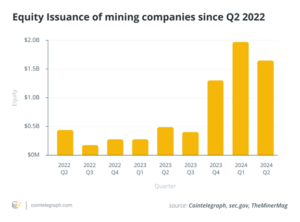
Bitcoin miners raised funds primarily to finance hardware upgrades required to remain profitable as the fourth halving squeezed margins. Companies needed to upgrade their equipment to more efficient models to offset the lower rewards.
Miners diversifying their operations to incorporate HPC, including artificial intelligence computing, have gained easier equity capital access. The queue to plug into the United States power grid takes an average of five years, but Bitcoin miners are already tapped into it, giving them a competitive advantage in HPC. The conversion of Bitcoin mining infrastructure into HPC data centers requires investments, but clients are often willing to offer equity funding, which brings down the cost of capital.
Diversification: AI and HPC as new revenue streams
Several companies, including TeraWulf, Iris Energy, Hut 8, Core Scientific and Hive, have already started branching into the HPC and AI sectors. Currently, revenue from HPC and AI accounts for just 1.43% of their total revenue, but this figure is expected to grow as the demand for AI continues to surge.
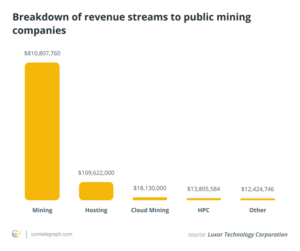
Companies that have embraced the HPC and AI strategy saw their valuations rise more than those that have not. By the close of Q2, the stock value of miners involved in AI and HPC had increased by 25% year-to-date, while traditional miners experienced a 3% decline.
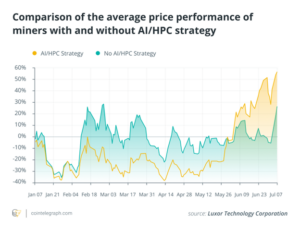
What market share these mining companies will acquire in the HPC and AI sectors has yet to be seen, but the competition is fierce. Currently, the industry is dominated by the big three — Amazon Web Services, Microsoft Azure and Google Cloud — which together control 63% of the market. As Bitcoin mining companies push into the space, they will face significant challenges in carving out a share in an already competitive industry.
Marathon Digital hold strategy
While the majority of Bitcoin miners secure funding to update their equipment or diversify into HPC, Marathon Digital plans to use new capital to acquire more Bitcoin. In a July 25 publication, Marathon announced a purchase of $100 million worth of Bitcoin and a switch to a full hodl strategy, which reflects the company’s belief in the long-term value of Bitcoin.
Investors reacted with skepticism. On Aug. 12, the company revealed its plans to issue $250 million worth of convertible debt, but the stock tumbled on the day. Equity investors might be worried about Marathon’s growing dependence on the Bitcoin price and the dilution of their holdings if the issued debt is converted to equity.
Despite recent purchases, Marathon’s Bitcoin holdings account for only approximately 30% of its market capitalization. For MicroStrategy, this ratio exceeds 50% and is likely to increase even further as the company recently filed for a $2 billion equity program. Historically, MicroStrategy has used equity funding to accumulate Bitcoin, and the strategy seems to be paying off: As of the end of Q2 2024, the company owned over 226,000 BTC with an average acquisition price of $36,789.
